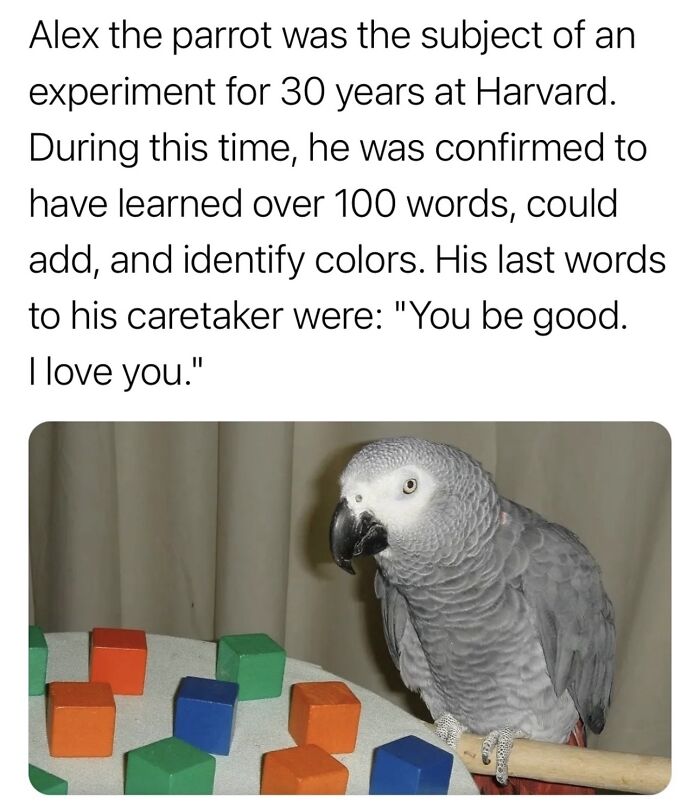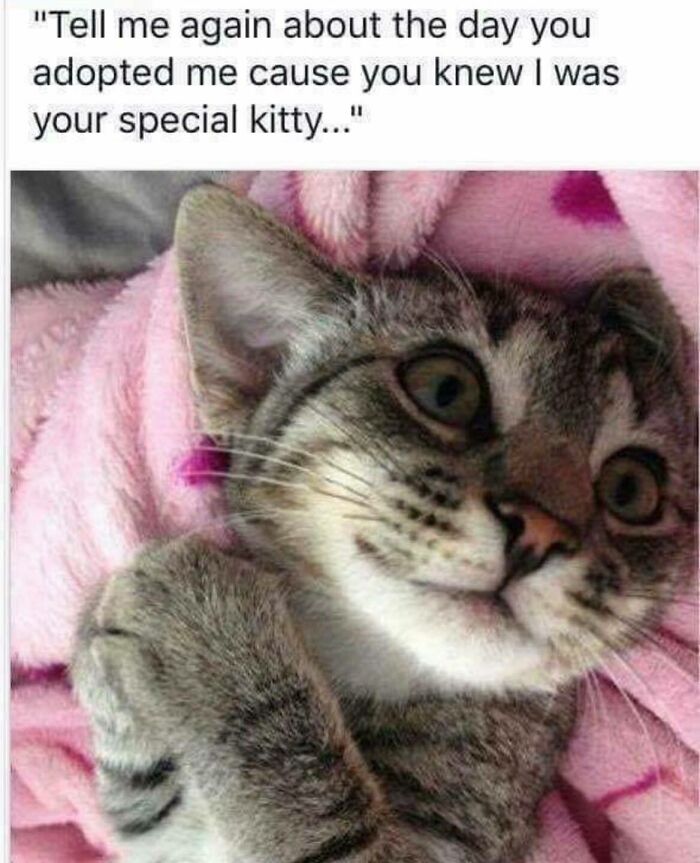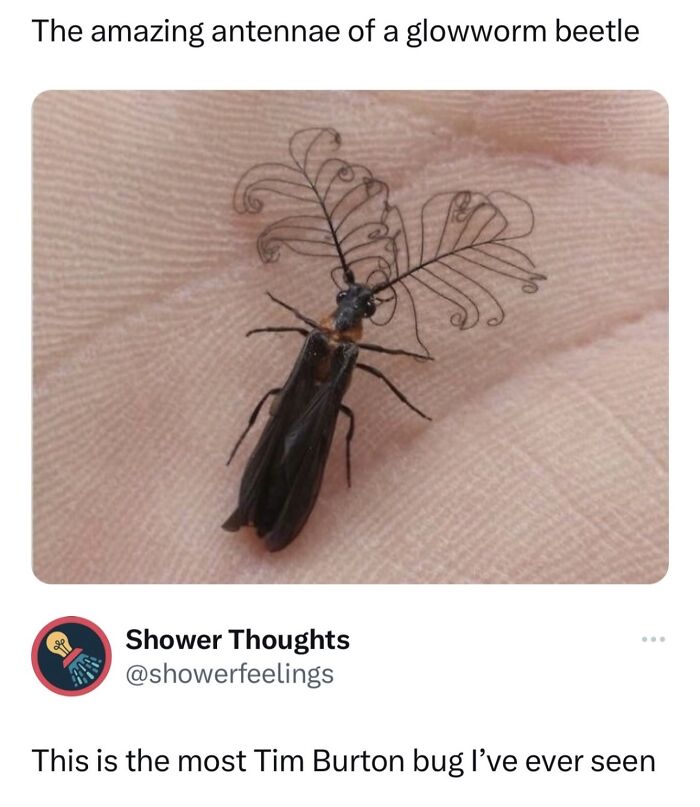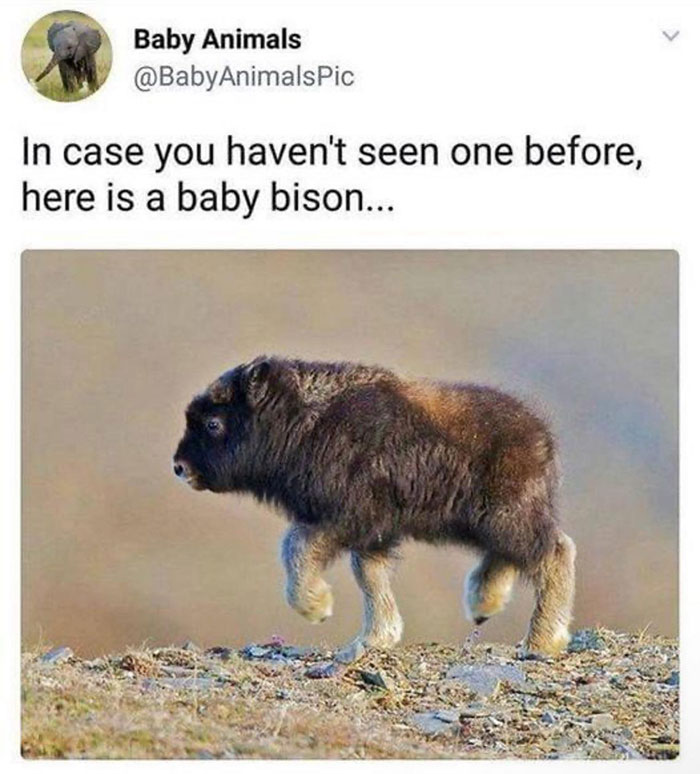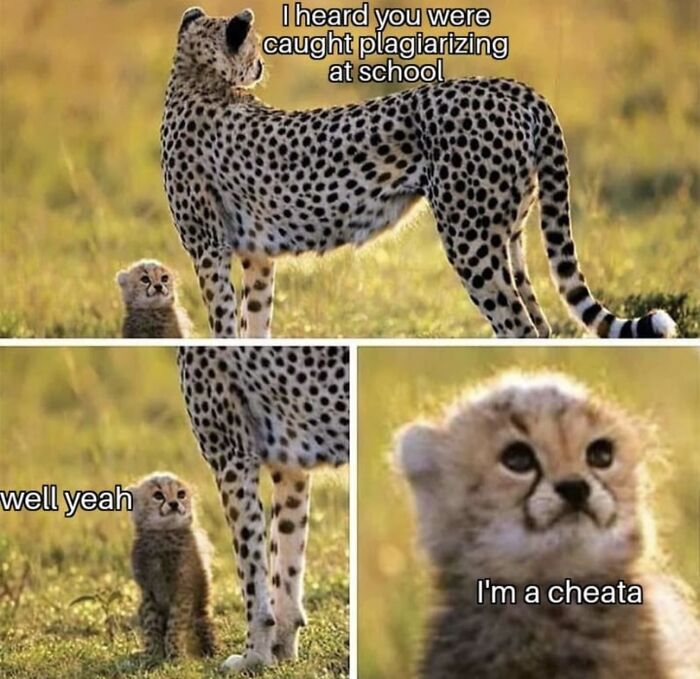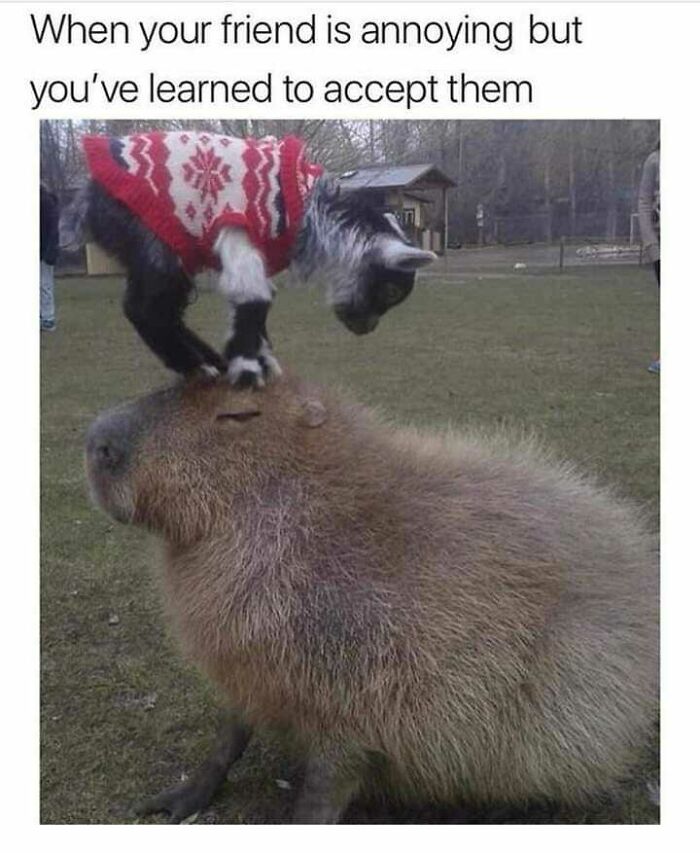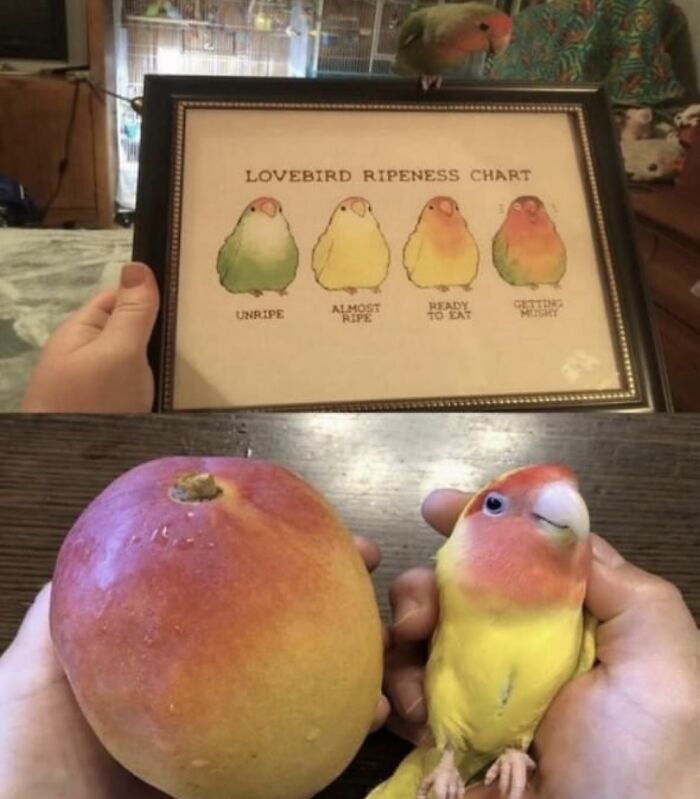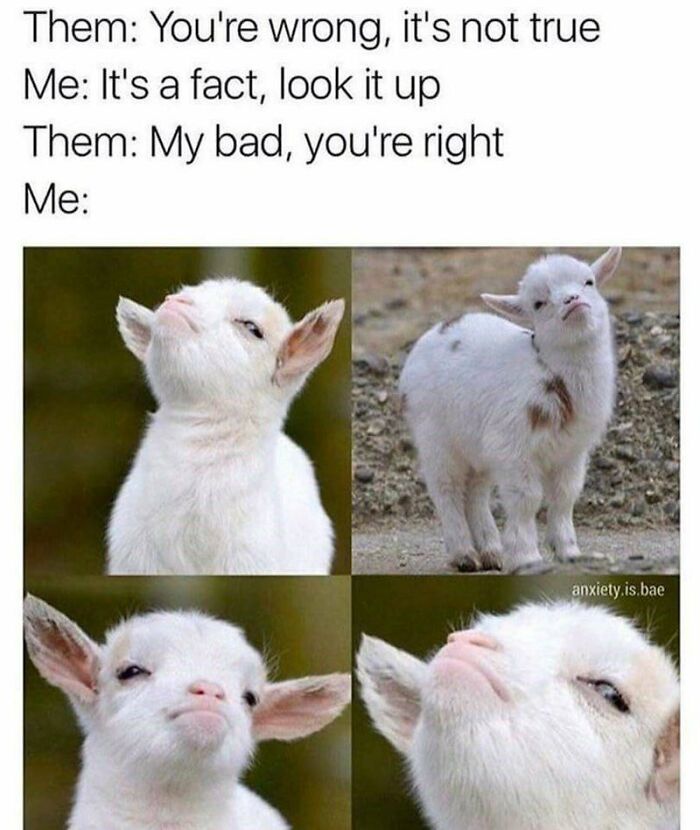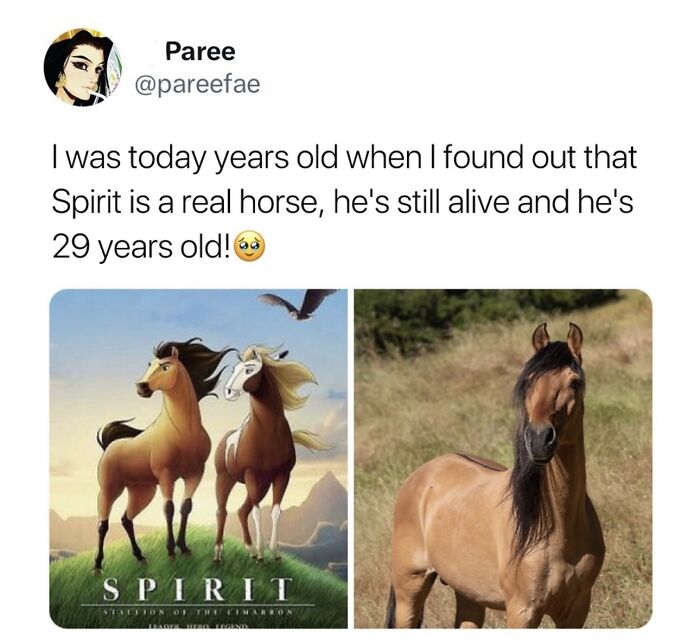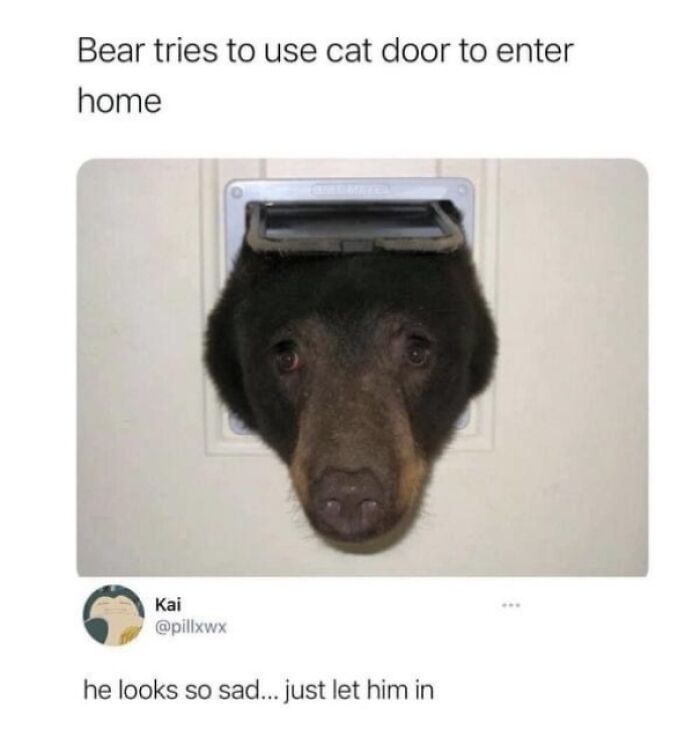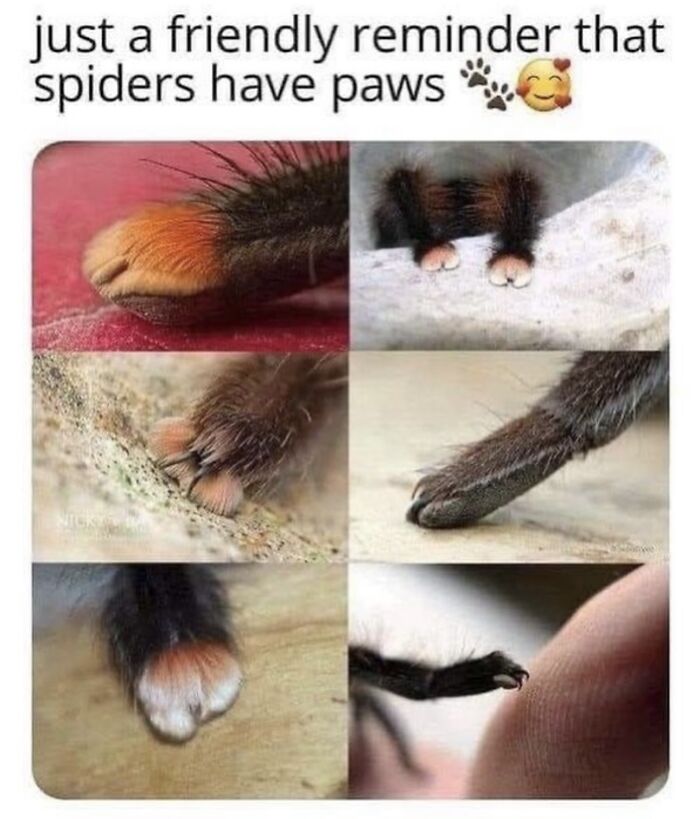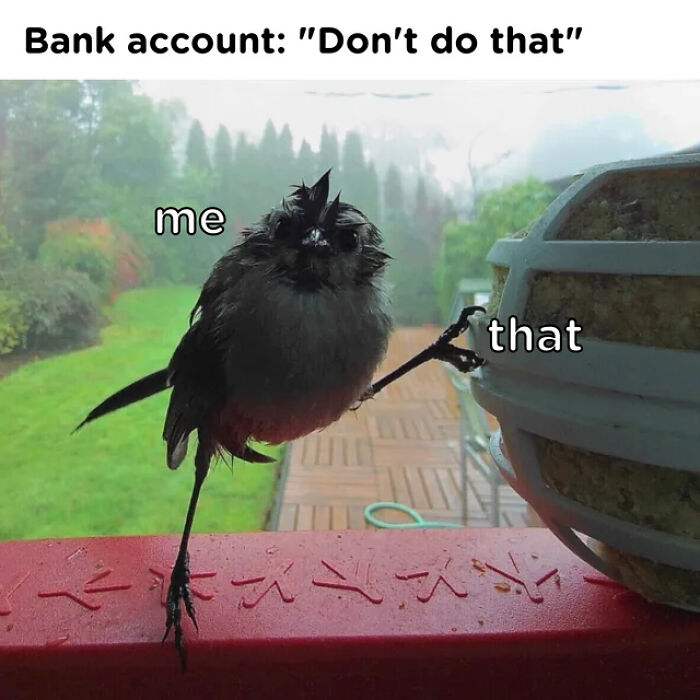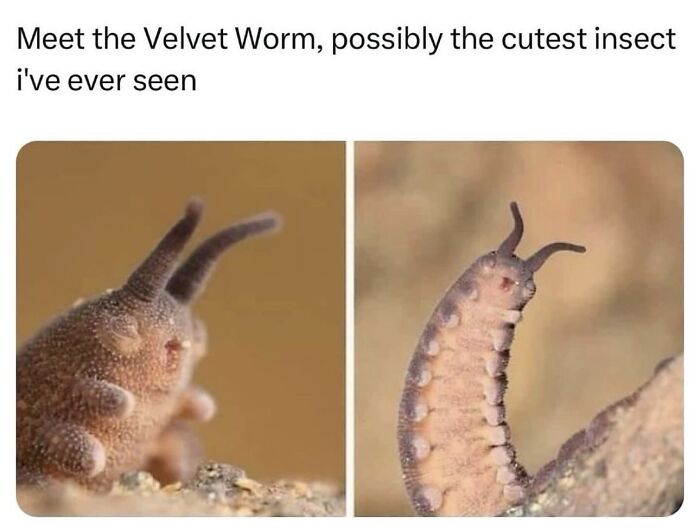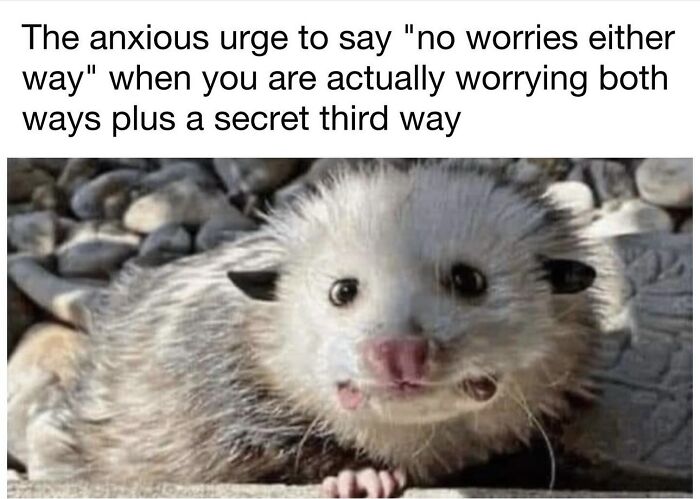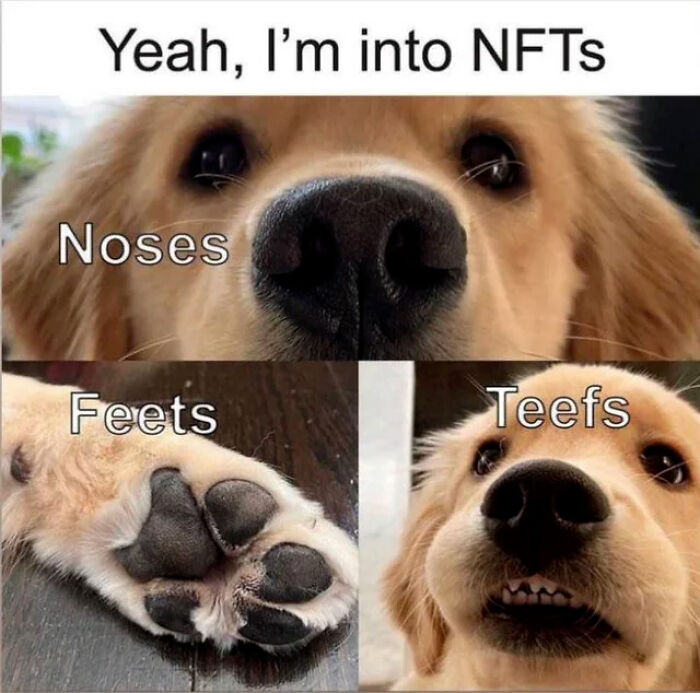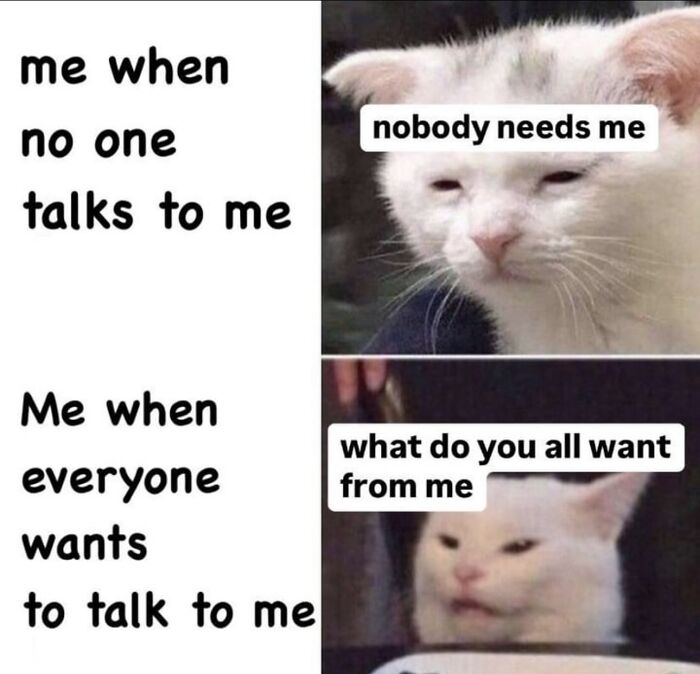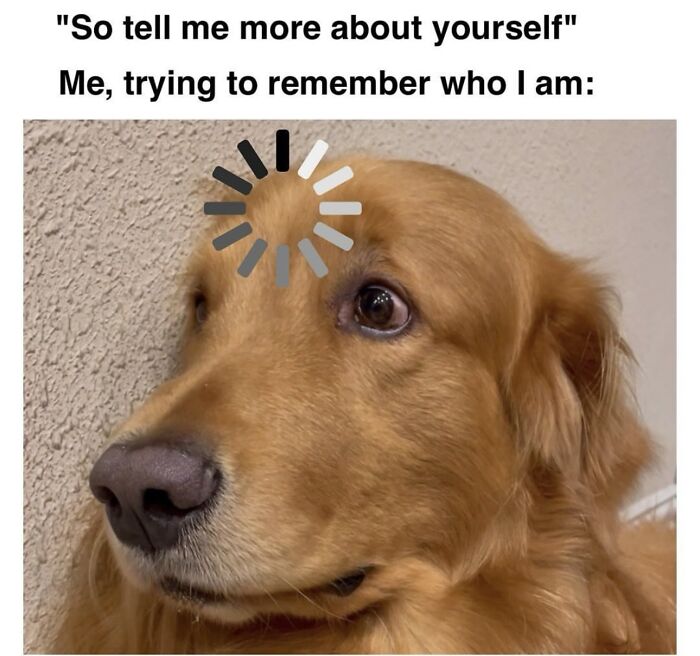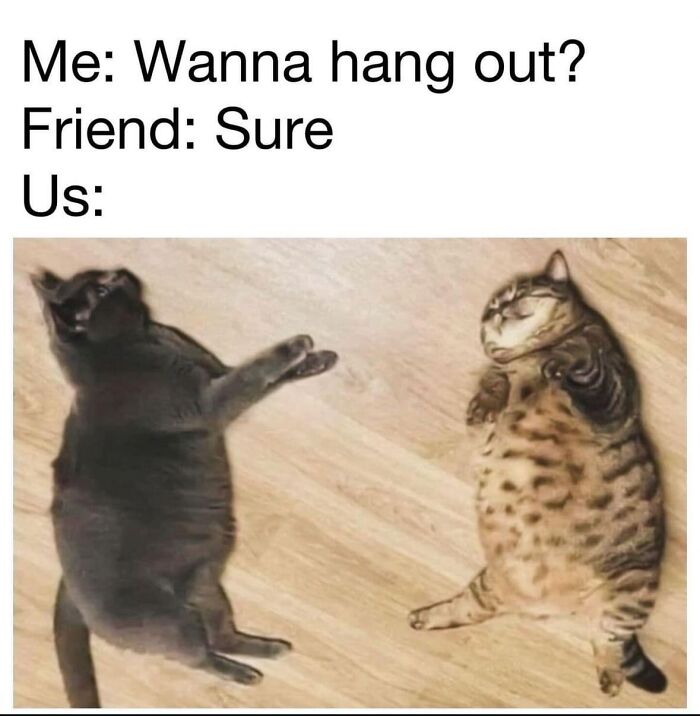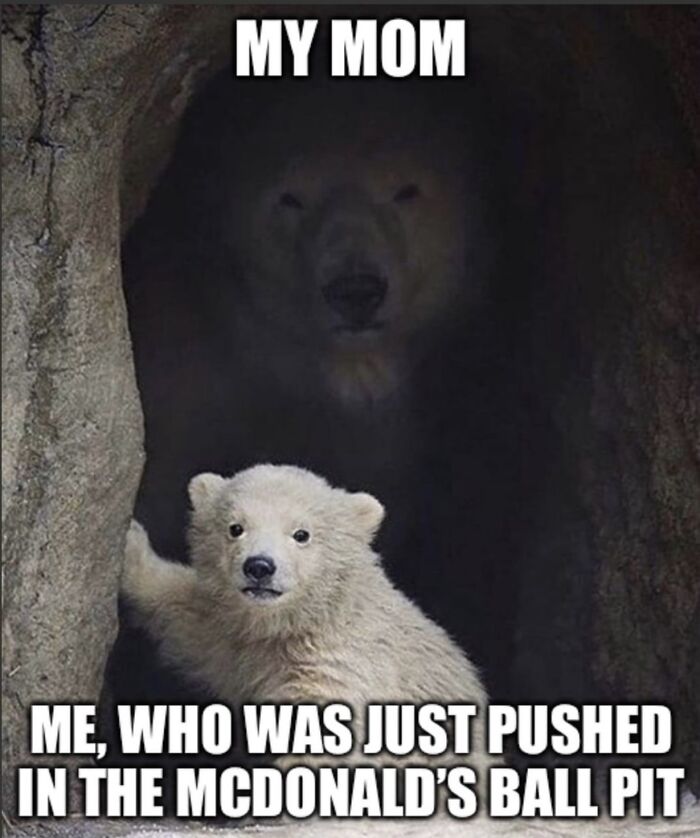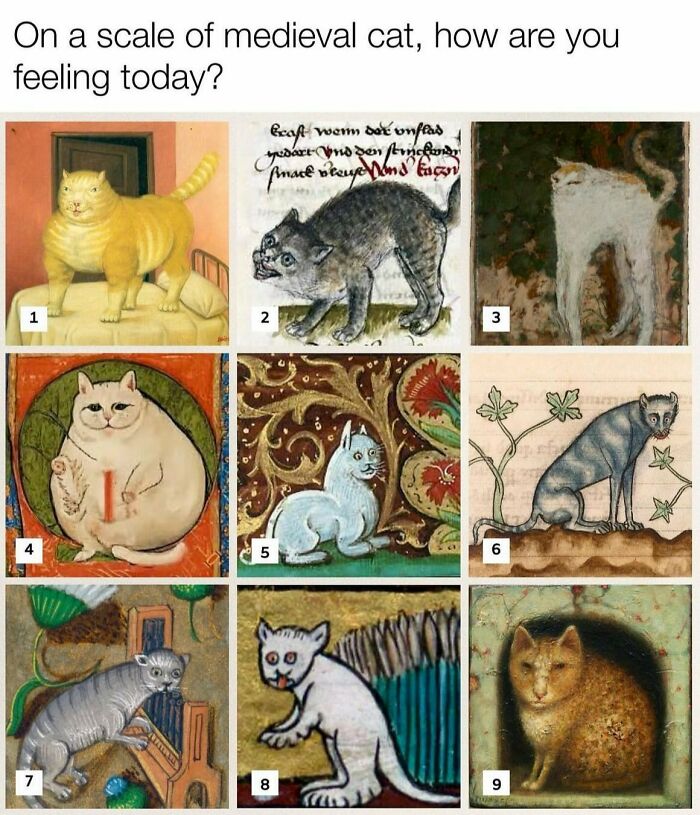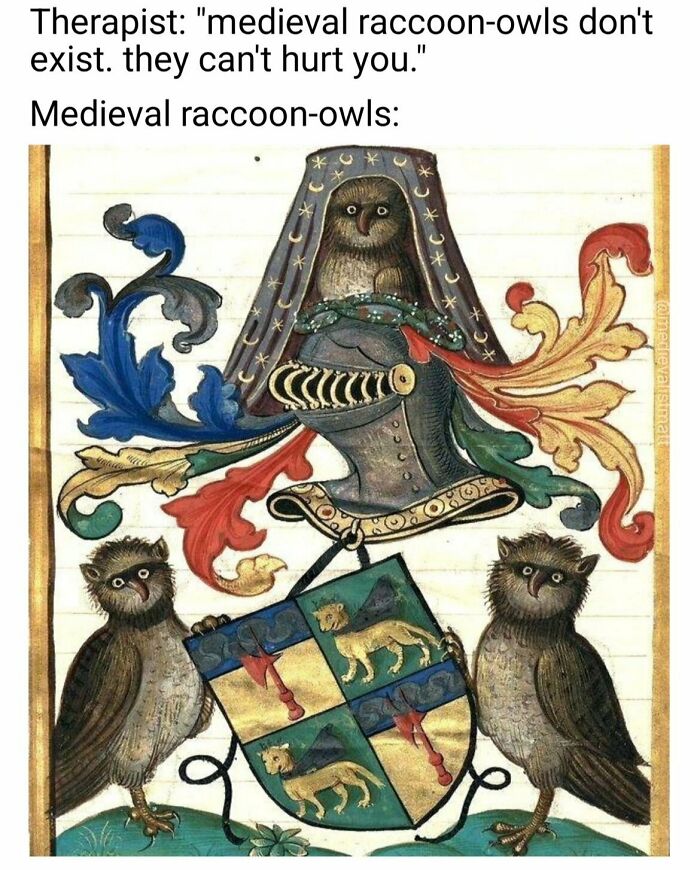How are you doing, pandas? We trust everything is going well for you, but if you’ve found yourself in a bit of a slump, we’ve got a surefire way to turn your day around: animal memes!
We love featuring these from time to time, and today, we’ve gathered some of the most adorable and funniest posts from this Facebook page with over 1.6 million followers. It’s clearly a hit, and we hope you’ll find it just as delightful. Scroll down to check out their heartwarming memes, and don’t forget to upvote your favorites!
This post may include affiliate links.
Sometimes animal memes are so hilarious that we wish we could share them with our pets. But even though our furry friends might not understand them in the same way we do, research suggests some animals actually have a sense of humor.
That’s what Isabelle Laumer, a post-doctoral researcher at UCLA, and her team discovered in a recent study. After watching over 75 hours of videos featuring great apes, they found these intelligent animals have a playful side and enjoy teasing each other with practical jokes.
Great apes, which include orangutans, chimpanzees, bonobos, and gorillas, are our closest living relatives. In the study, the apes were filmed in zoos during their daily routines. The researchers noticed that all four species engaged in teasing behaviors, such as poking, hitting, and pulling on each other’s body parts. Some even waved objects in front of their fellow apes’ faces or pulled their hair.
“What we saw often was that a juvenile would sneak up behind an adult that was busy grooming another ape, and proceed to poke them or hit them on the back, sometimes even surprising them,” explains Laumer in an article for the BBC.
“They’d then wait and watch for the adult’s response. Usually, the target would just ignore them, and so they’d persist in their teasing, making the behaviour more and more elaborate and difficult to ignore, until they sometimes ended up slamming the adult with their entire body.”
According to researchers, the teasing among apes is similar to the playful behavior seen in human children. It’s intentional, persistent, and often includes an element of surprise, much like sticking your tongue out at someone and then running away to see their reaction.
This playful behavior might even lay the groundwork for more complex humor. “Joking in humans requires quite complex cognitive abilities,” says Laumer. “You need theory of mind (the ability to imagine the world from someone else’s perspective), knowledge of social norms, the ability to anticipate others’ responses and to appreciate the violation of other’s expectations,” she adds.
But it’s not just our closest animal relatives who like to have a good giggle. If you’ve ever watched dogs playing, you might have noticed they make a sound that resembles laughter, and you’d be right!
According to the American Kennel Club, this “doggy laugh” is a breathy exhale through their mouth. It’s a way for dogs to communicate during play, whether they’re starting a game of chase or play-bowing.
Interestingly, research shows that, just like in humans, laughter is beneficial for dogs. A study led by Patricia Simonet examined how the sound of dogs laughing affected other dogs at a shelter in Spoke, Washington. By playing recordings of these happy noises, researchers found that dog laughter helped reduce stress and encouraged more positive social behavior among the shelter dogs.
Meanwhile, other researchers have observed that dolphins make joyful sounds while they’re play-fighting, and elephants trumpet with excitement during their playtime, writes Jasmin Fox-Skelly. Parrots also like to join in on the fun by teasing other animals, like whistling at and puzzling the family dog.
I do this too... Not sure if it is a tick or if it is something wrong with me, but on the phone I cannot stay still
Even rats enjoy an occasional laugh! For over a decade, Jeffrey Burgdorf at Northwestern University has been tickling rats to study their reactions. As surprising as it may be, these little critters make high-pitched squeaks that sound like giggles when they’re tickled. They keep coming back for more and can even play hide and seek for a “tickling reward,” according to research from Humboldt University in Berlin. Burgdorf and his team are now using these findings to help develop new treatments for depression.
However, it’s still a bit of a mystery whether these antics really show that animals have a sense of humor or if their behavior has another purpose. For instance, are the apes in Laumer’s study actually playing practical jokes, or are they just trying to grab someone’s attention or defuse tension?
“Do I think that animals have a sense of humor? Yes, I think they do, but it's difficult to prove,” believes Bekoff.
“For example, I’ve come across households with two dogs, where at feeding time one dog runs to the front door and barks. The other dog then runs to see who’s there, while the first dog runs back and eats their food. So, you could say that's showing a sense of humor, but the first dog may have just learned that that's how they get more food.”
There’s also the debate of whether having a sense of humor serves an evolutionary purpose for animals.
“In humans, humor can serve as like an ice-breaker, removing social barriers and strengthening relationships,” says Laumer. “We don't know if it's the same in apes or other animals, but it's possible. To know for sure we would need to test and observe more groups of primates and other species.”
Are we not gonna talk about the bird-foot dance steps molded into the rail?
Calvin and Hobbes: Calvin: I keep forgetting that five of his six ends are pointy when he lies like that.
I went camping Tuesday afternoon, return Wednesday afternoon and my cat isn't really eating now. That's like...what makes Rosie Rosie, always starving and begging for food. Got an appointment for the vet tomorrow if her eating doesn't improve. My boyfriend says it's because she missed me, but... doesn't seem right.
Man I love hippos. They're so cool. From a distance of course. Just think we could have had hippos in the U.S. if the 1910 congress had had one more vote to pass the America Hippo Bill. The government wanted to bring hippos to Louisiana state and let them go in the bayou so they would eat an invasive plant species and be available for hunting/meat. Edit to add: I don't think it was a good idea so much as it's funny. I'm well aware it would've been bad.
Even though you already know I’m going to RSVP NO to every single one of your invitations, don’t stop sending them to me! It’s because they symbolize you still thinking of including me, regardless of whether I want to be included or not. Of course I still won’t go to your event, but it’s so incredibly nice to be asked anyway.
Blob fish don't actually look like that #blobfishjustice lol
As an elementary school teacher I feel this deeply. Kids want to do the dumbest shizz all day every day and part of me wants to let them, but I'm required to try to teach them and they are required to try to learn and so the dance goes on...
This only proves my theory that dogs have elevator music playing in their heads all the time.
There's a huge difference in quality in cheap pet food and (some) expensive ones.
Please don't put anyone else at risk for your own lateness. So many drivers "just go a bit faster" or "just sneak through as the light is changing".
•
Not Quite Done Yet!
Discover Your Competitive Edge
Subscribe Premium to Compare Your Stats with Others
More Premium features:
How did you score compared to others?
Your general stats:
| User | Result | Reward |
|---|---|---|
  | / 20 | |
  | / 20 | |


 Dark Mode
Dark Mode 

 No fees, cancel anytime
No fees, cancel anytime 



